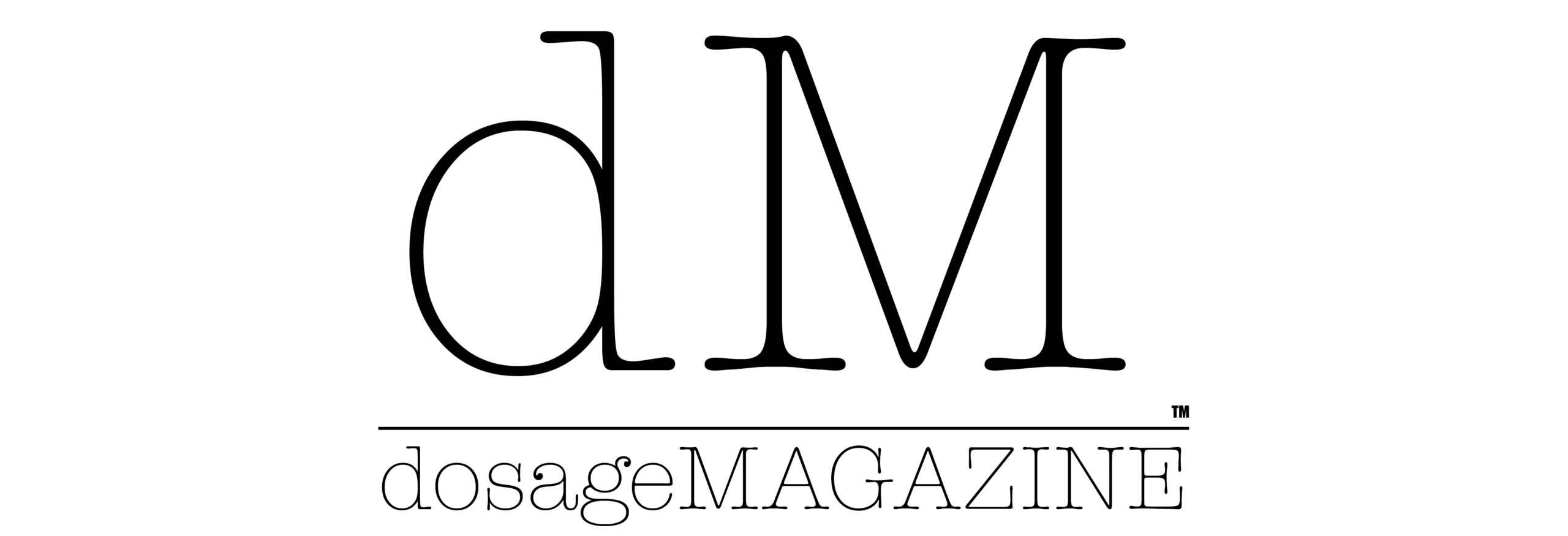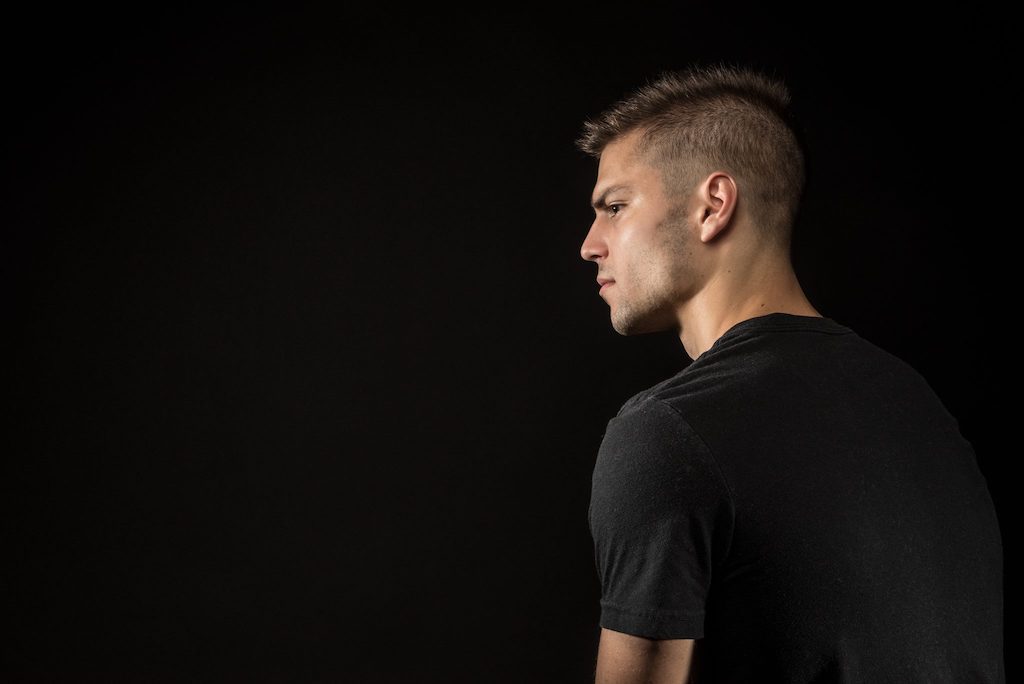
Philadelphia programmer, producer, composer and jazz musician Keegan Tawa, is among the ranks of new, young and dynamic house music makers. With “Undone,” a vocal track featuring singer Sophie Coran, Keegan Tawa is luxuriating in melancholic progressive house with elements of trance and synth-wave in its mix.
Ever since 1984 and the release of “On and On” by Chicago DJ Jesse Saunders, house music has been the music of life, of epiphany, of joyous dance and uplift. House music has been politicized and stretched into other forms and scenes beyond its Black, Latino and LGBTQ+ roots – into deep house, micro house, acid house, techno house, ghetto house, hip house and progressive house; into rave culture, New Jersey, Detroit and Ibiza, into pop and beyond. Currently, the fourth gen of house music is experiencing a revival at the hands of Beyonce and Drake – currently on the charts – and soon, Leon Bridges who told me that his next EP would experiment with the house music form.
Releasing September 9 on all platforms, Keegan Tawa – a Queens Village resident and a space tech software engineer by day – gave dosage MAGAZINE and I the scoop on what it is to be “undone” and on the house music tip for this, and many other new tracks.
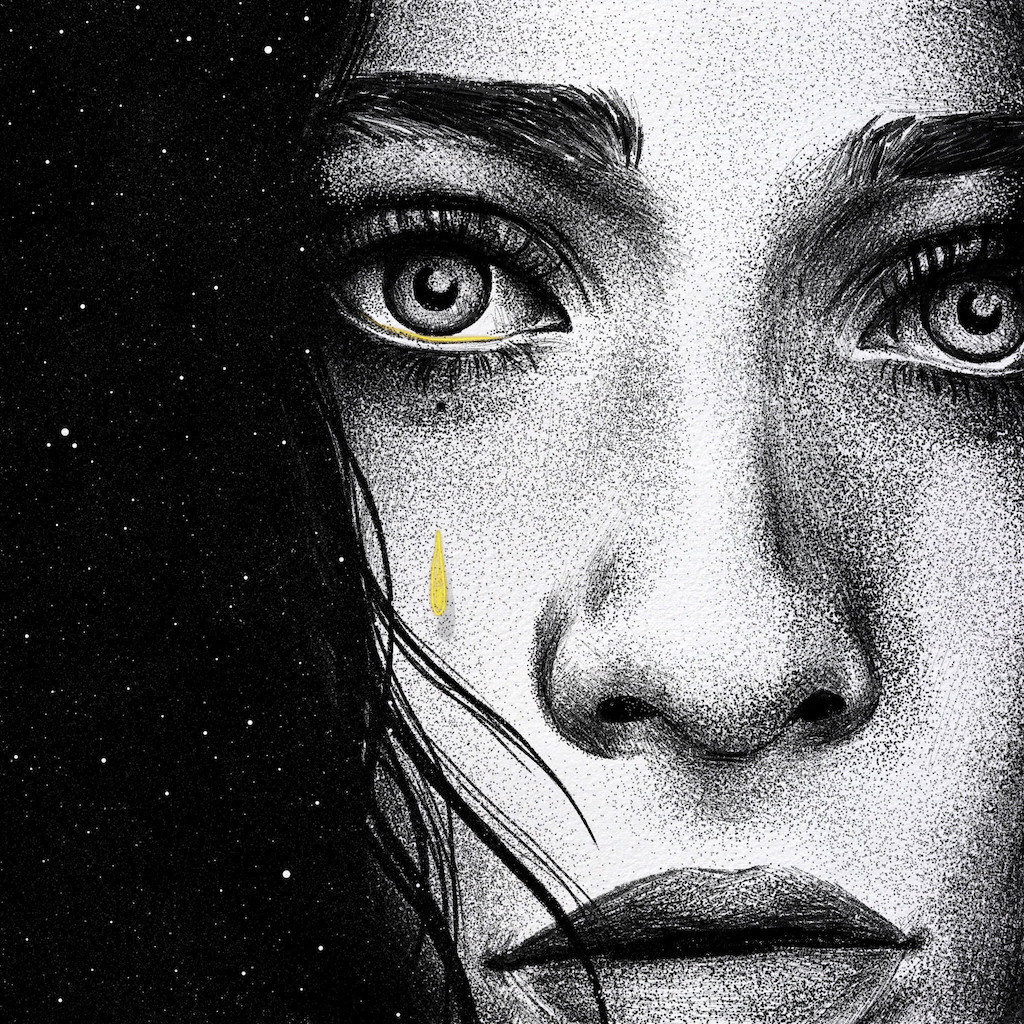
A.D. Amorosi: How and why does a software engineer involved in space tech take to programming and composing house music? Is there a connection between intergalactic tech sciences and tech house as you see it?
Keegan Tawa: I’ve been playing and writing my music my entire life, for as long as I can remember. I’ve always been really passionate about music, science, and technology, all in equal parts. There are a lot of parallels between my music and my work, but I think that the biggest overlap is my engineer’s approach to songwriting and production. I like to treat the technical, and some of the artistic, aspects of my music as an engineering endeavor. Between the synthesizers, the software, the hardware, and its aesthetic of futurism, electronic music is already so highly technical and technology-focused that it isn’t even a reach to compare its creation to an engineering process. The fact that I work in space technology and am fascinated by space exploration definitely presents itself in my music – in its general, spatial tone and atmosphere, but especially in compositions like “Startide”, which is, literally, a space opera.
A.D. Amorosi: Why do you believe, suddenly, that mainstream R&B and hip hop artists such as Beyonce and Drake have adopted the house music sound as part of their continuum?
Keegan Tawa: I think that like jazz, house music since its inception has become a part of the standing genetic material of nearly all pop-western music. People love to cry that “jazz is dead” or dying. Which is of course an ignorant claim… We are currently in a jazz renaissance… while neglecting that our society’s harmonic and rhythmic sensibilities have been unquestionably and irreversibly sculpted by Jazz’s influence, in all of its varying forms and stages, throughout the 20th century. In a way, Jazz has become so absorbed and standardized into our popular western music that it seems to the oblivious to have disappeared altogether. Harmony and rhythm as our society know it has been driven by a century of jazz development, from railroad jodies to early 20th century rhythm and blues, from big band to be bop, and from acid jazz to the incredible and numerous experiments taking place in the field today.
… I think that house music, though a much younger genre (and no doubt influenced by Jazz), exhibits a similar influence in music-at-large. Its percussive emphasis, dancefloor rhythms, its harmonic ideas and its synthesizer timbres have all seeped into and saturated pop music as we know it. Music is cyclical, and from time to time, a more “traditional” house sound rises up from the static and rears its head, for example, the new work by Beyonce and Drake. But House has always been there, a sort-of cosmic background radiation, looming just behind and framing all of our “new” music. And behind that, the deeper radiative field of Jazz’s influence. And behind that, well, we could keep scrolling backward and outward through the history of our civilization until we arrived at the voice of the first drum ringing out across the African Veldt.
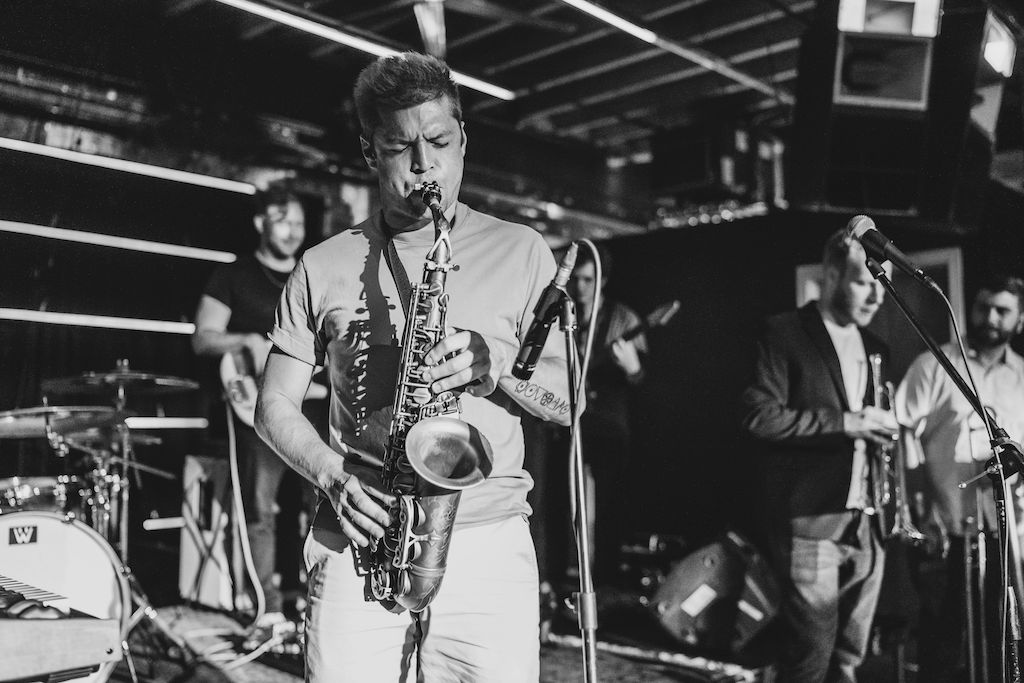
A.D. Amorosi: Tell me, please, about fitting jazz into all of your house music as that is a big part of your studies and saxophone playing.
Keegan Tawa: I grew up playing jazz and it’s some of my favorite music to listen to and enjoy in a live setting. I seek constantly to persist a vector of Jazz in my music. Sometimes, it’s direct and obvious, such as my record, “Triangulation,” which was recently featured on NPR’s Jazz Night in America, and other times, it’s more subtle, like “Startide” or “Undone”.
… Like I mentioned previously, I think Jazz has taken on a ubiquitous role in our harmonic and rhythmic culture and that nearly all of our pop and dance music bears forth some genetic element of Jazz. However, I also equate the spirit of jazz to exploration, experimentation, improvisation, and rules-breaking. I think jazz is not about attending school and learning how to play like the greats of the last century, but about forging uncompromising and experimental paths forward into unexplored musical territory while respecting the great musical legacy of those who came before us, to be sure. To me, that is jazz, and I try to capture that attitude in all of my music.
A.D. Amorosi: House music has been a huge part of Philadelphia’s DJ culture, even if it faded into the background for a second. Why now is it ripe enough to bring back, and where do you hear it happening most?
Keegan Tawa: I think there’s actually a lot more House music happening in Philly than people realize, at least, there was before the Covid lockdowns, and the scene is currently in the process of reviving itself. It’s doing well. There are quite a few really thoughtful and intentional crews producing excellent and musically focused underground parties all over the city… Departed, Subsurface, Goodie, Shakedown, just to name a few off-hand. Sometimes these events creep into bigger venues, and sometimes they remain fully underground. For those willing to do a bit of digging, there is an active and compelling scene happening here in the city.
A.D. Amorosi: Trap Rabbit was certainly a part of that earlier movement. How and why did you hook up with Logan Roth for the “Undone” track?
Keegan Tawa: Logan was one of the first musicians I met when I moved to Philadelphia six or seven years ago. We met at an open jam session that he and Arjun, his bandmate, were hosting at the Grape Room in Manayunk. I’m a huge fan of his band, Trap Rabbit, and since meeting him we have jammed countless times all over the city. And he is featured on my record “Startide” as well.
A.D. Amorosi: Same question regarding vocalist Sophie Coran with whom you collaborated on “Startide” and “Undone”. Why and how did you two get together?
Keegan Tawa: Sophie and I were pulled into the same ensemble on two different occasions. Once to perform with Jack Zaferes and once to play with Josh Miller. On both occasions, we really got along, and after seeing Sophie open for Jack Zaferes at Plays & Players theater, I was fascinated and captivated by her incredible voice and stage presence. Working on “Startide” with her was a delight.
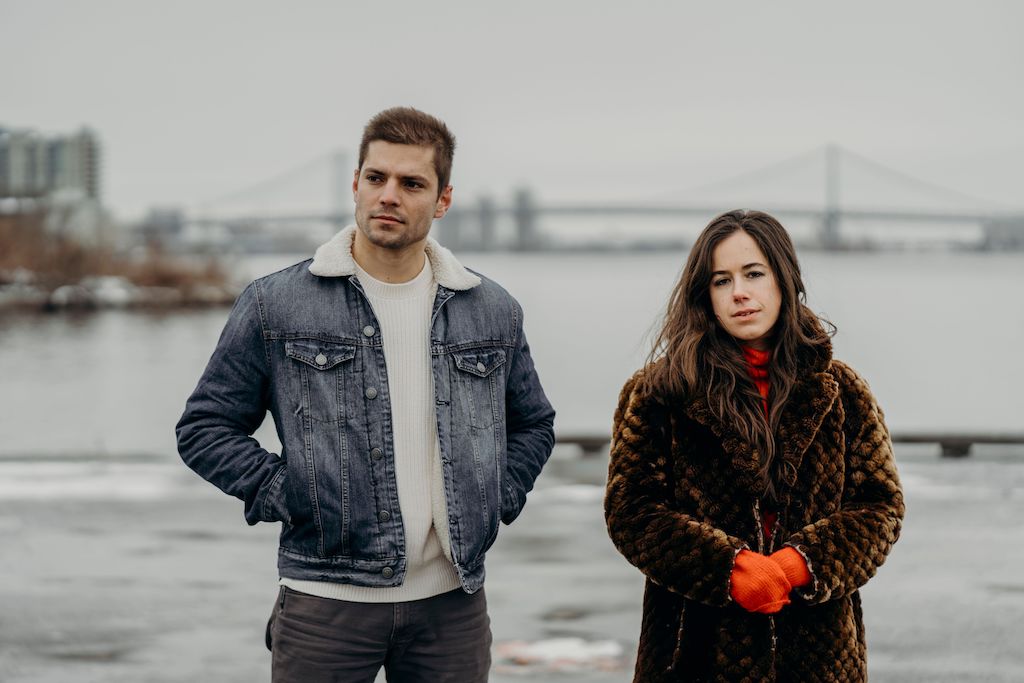
A.D. Amorosi: What is next for you after the rollout of “Undone”?
Keegan Tawa: I’m currently fully underway on a new project entitled Tessellation. Tessellation is an electronic-jazz record deeply inspired by pan-Arabic music. As a person of middle-eastern descent who is totally disconnected from my heritage, I’ve been enjoying learning about and studying the music of the middle east. It feels like a way to connect with my familial past, even if it’s superficial. I’m working on intersecting traditional middle-eastern styles with western jazz ideas and modern electronics. In addition to a half dozen players from Philly, we’ve recorded a Kamanche player from Iran and an Oud player from Riyadh, and I’m currently working with a vocalist from Giza. The album is led by the Duduk, a traditional Armenian flute that I play. Despite its traditional influences, I’m also trying to make the album feel extremely futuristic. I think it’s going to be a special piece, and it’s evolving into a colossal project.
A.D. Amorosi: What is your personal and professional motto?
Keegan Tawa: “I must not fear.
Fear is the mind-killer.
Fear is the little-death that brings total obliteration.
I will face my fear.
I will permit it to pass over me and through me.
And when it has gone past, I will turn the inner eye to see its path.
Where the fear has gone there will be nothing. Only I will remain.”
About Post Author
Discover more from dosage MAGAZINE
Subscribe to get the latest posts sent to your email.
